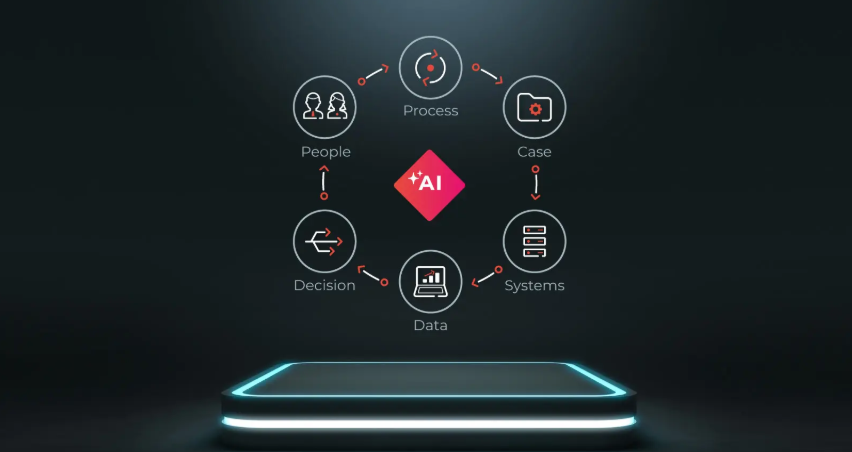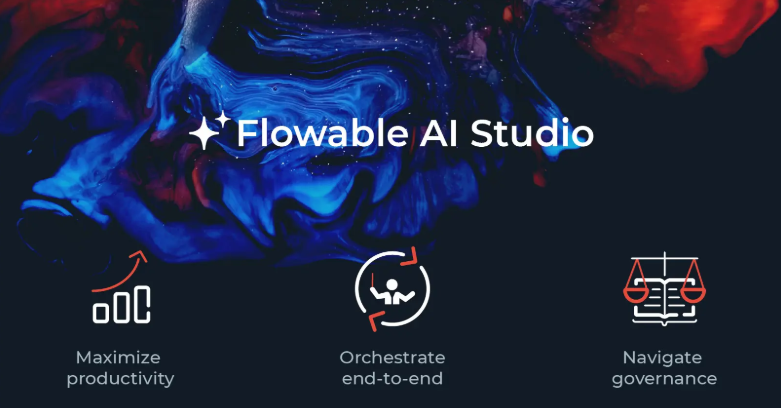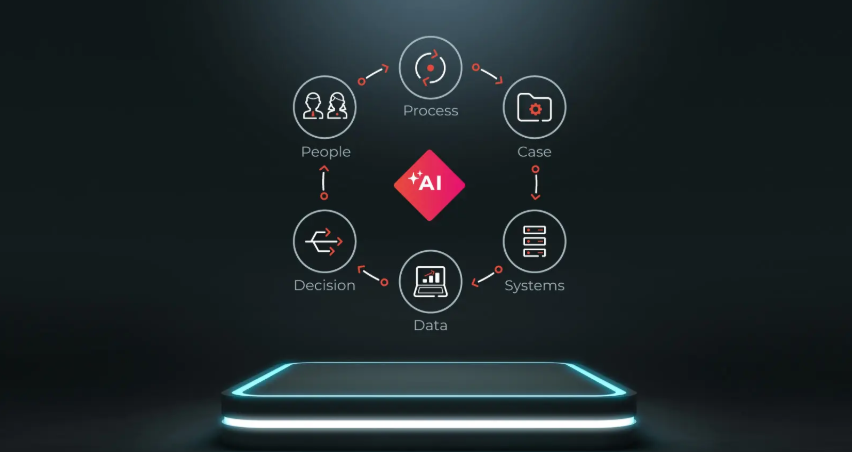Businesses are handing over more decisions to AI every day—but how much control is too much?
This debate fuels the rise of AI agents—systems that handle complex tasks with minimal human input but still need oversight to stay on track.

AI agents have the power to transform industries, but without the proper checks, they can steer businesses off course. Flowable helps companies take control of AI agents by designing, managing, and keeping them in check so they work for them, not the other way around.
We’ll break down how AI agents work, the challenges of using them, and how Flowable helps businesses strike the right balance between automation and control.
The Growing Role of AI Agents in Business
AI agents automate tasks, make decisions, shape customer experiences, and run workflows. While AI is already widely used—from chatbots in customer service to predictive analytics in marketing—AI agents go further, handling complex, multi-step processes with greater autonomy.
But with this potential comes new challenges. How do you keep AI agents on track while reaping the benefits of automation? What happens when an AI agent makes a decision that doesn’t align with business goals? Can companies scale AI use without losing control?
The answers to these questions define whether AI is a competitive advantage or a costly liability.
Key Benefits of Agentic AI for Enterprises
Flowable’s approach to agentic AI offers a controlled environment where businesses can fully harness AI while maintaining strict oversight. Here’s how organizations can benefit:
1. Build and Orchestrate AI Agents
Flowable lets businesses build AI agents that fit their needs, from basic data entry to complex decision-making. AI agents can be created from scratch or integrated into existing workflows, ensuring seamless coordination across teams and systems while reducing manual effort.
A key advantage is adaptability. Unlike rigid automation tools, AI agents can respond dynamically to changing conditions, making them applicable across different industries—from finance and healthcare to retail and logistics.
2. Govern AI Agent Behavior
With Flowable, businesses decide precisely how much freedom AI agents have—when they can act independently and when humans need to intervene. By setting clear boundaries, companies can ensure that AI agents follow company policies and meet regulatory requirements.
This structured governance model helps avoid risks like AI making decisions based on incomplete or biased data. By maintaining control, businesses can leverage AI’s strengths without unexpected consequences.
3. Integrate AI Agents with Existing Systems
AI agents are most effective when they work within an organization’s existing systems. Flowable enables businesses to connect AI agents with other enterprise tools, ensuring smooth data flow, efficient processes, and better collaboration across teams.
For example, an AI agent in a customer support team can instantly pull relevant order history, analyze customer sentiment, and suggest the best resolution—all without requiring human agents to sift through multiple systems.
4. Scale AI Deployments
Flowable helps businesses scale AI without losing control or security. Its exemplary architecture allows organizations to expand the use of AI agents without sacrificing performance or oversight.
This means businesses can start small—perhaps with one AI agent handling a routine task—and then scale to multiple agents across different departments, all operating under a unified governance structure.
Real-World AI Agents: How Businesses Are Using Them
AI agents offer vast applications across industries. From improving customer service to driving operational efficiencies, businesses are already leveraging agentic AI to streamline processes and enhance user experiences. In their upcoming webinar, Flowable will share real-world examples of how AI agents are shaping business operations.
For example, customer-facing AI agents can handle inquiries, resolve issues, and provide tailored recommendations while learning from interactions to improve future responses. Similarly, AI agents working behind the scenes can automate data processing, analyze large volumes of information, and make decisions based on predefined criteria, allowing teams to focus on higher-value tasks.
Overcoming the Challenges of AI Adoption
While the benefits of AI agents are clear, the path to successful adoption can be complex. Many enterprises are still in the early stages of integrating AI into their processes, and concerns about control, security, and performance remain top priorities.
Flowable helps businesses navigate these challenges with a structured, transparent approach to building, managing, and governing AI agents. By defining agent behavior, ensuring compliance, and integrating AI into existing systems, Flowable helps businesses avoid common AI adoption pitfalls.
Additionally, Flowable’s emphasis on human-in-the-loop processes allows businesses to increase AI agent autonomy gradually. This ensures that while agents can make decisions independently, a layer of oversight remains in place to keep them aligned with business goals.
The Future of AI Agents in Business

Photo: Flowable
AI agents will play an even more significant role in business as AI evolves. With advancements in machine learning, natural language processing, and autonomous decision-making, AI agents will become even more capable of handling complex tasks and driving business outcomes. However, successful AI adoption requires more than just technology—it requires careful planning, governance, and control.
Flowable’s upcoming webinar is a great opportunity for enterprise leaders to learn more about how they can harness the power of AI agents and ensure their effective deployment within their organizations. Attendees will gain valuable insights into designing, managing, and scaling AI agents while ensuring they remain aligned with their business objectives.
Empowering Enterprises with Agentic AI
AI agents are changing how businesses operate, allowing them to automate processes, make data-driven decisions, and enhance customer interactions. Yet, as these systems take on more responsibility, companies must carefully define the limits of their autonomy. Without proper oversight, AI-driven decisions can drift away from business goals, introduce bias, or create compliance risks.
To implement AI responsibly, organizations need a structured approach that balances automation with human judgment, ensures AI aligns with company objectives, and evolves as business needs change. Platforms facilitating AI governance, integration, and scalability can help enterprises navigate these complexities.
For those looking to deepen their understanding, Flowable’s upcoming webinar will explore how organizations are approaching AI adoption. Attendees will gain insights into designing, managing, and scaling AI agents effectively while maintaining control and compliance.









